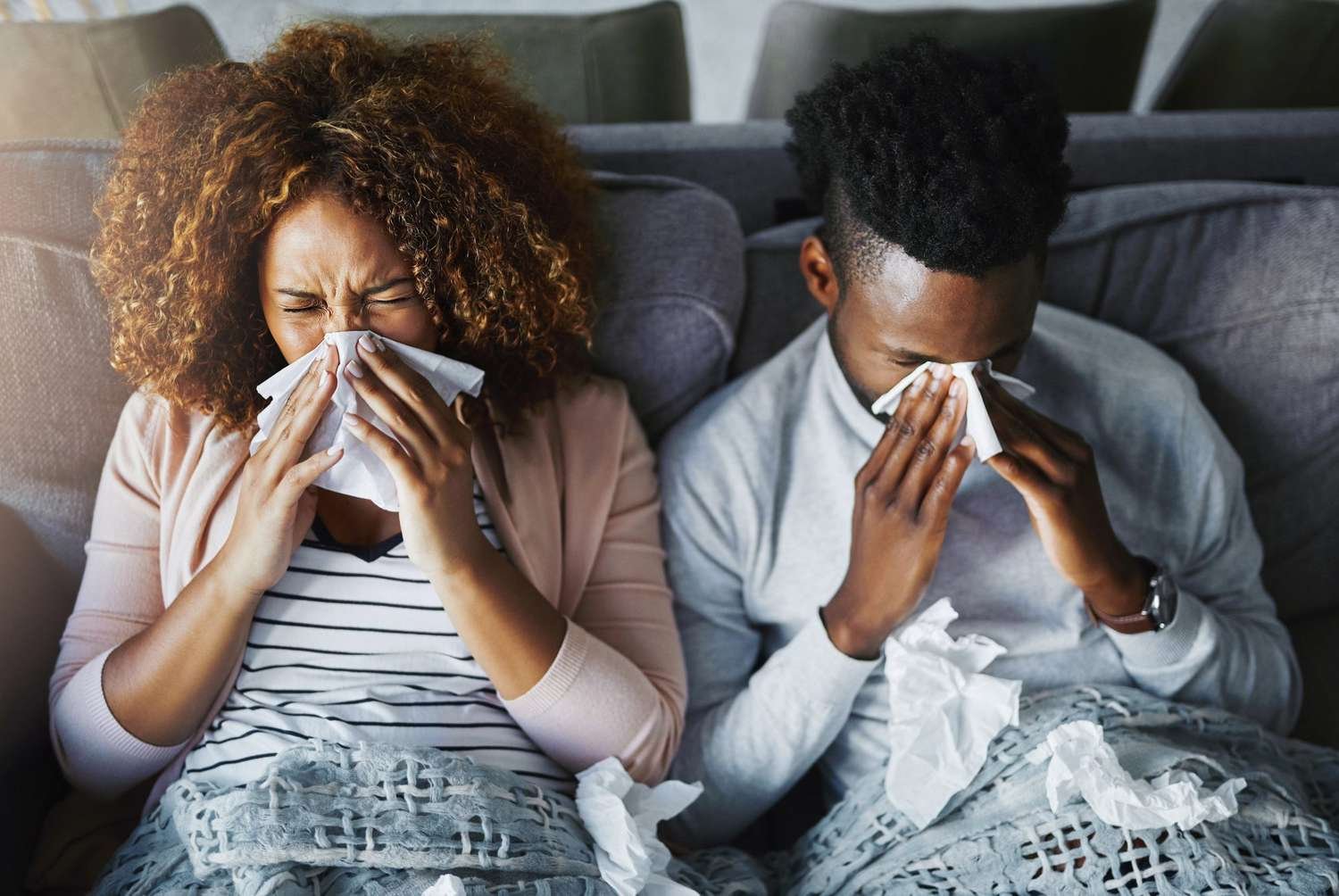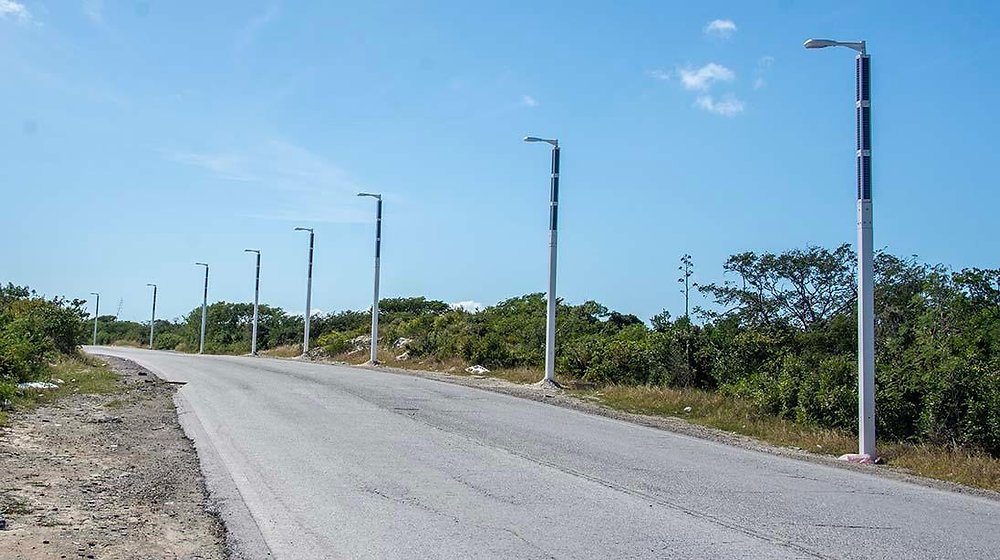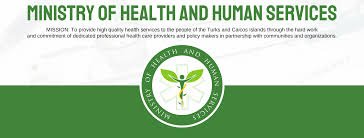
Severe Cases Of Flu In Turks And Caicos Islands
The Ministry of Health says at least four cases of a severe strain of the flu have been confirmed in Turks and Caicos Islands. In a press release, the ministry
The Ministry of Health says at least four cases of a severe strain of the flu have been confirmed in Turks and Caicos Islands.
In a press release, the ministry said 2022 has proven to be an active season for influenza globally and this includes the TCI, adding that cases of respiratory illness are trending in an upward direction both globally and regionally.
Noting that seasonal influenza is an acute respiratory infection caused by influenza viruses which circulate in all parts of the world, the release said there are 4 types of seasonal influenza viruses, types A, B, C and D. Influenza A and B viruses circulate and cause 𝘀𝗲𝗮𝘀𝗼𝗻𝗮𝗹 𝗲𝗽𝗶𝗱𝗲𝗺𝗶𝗰𝘀 of disease. Currently circulating in humans are subtype A(H1N1) and A(H3N2) influenza viruses.
“The results of samples from the TCI which were tested through the National Public Health Laboratory at the Caribbean Public Health Laboratory revealed the presence of 𝗶𝗻𝗳𝗹𝘂𝗲𝗻𝘇𝗮 𝗔 𝗛𝟯𝗡𝟮 in 4 out of 6 samples tested,” the statement said. “This is in keeping with global trends as the dominant strain of influenza circulating in the US is H3N2. This strain has also been associated with more severe illness which has translated into higher numbers of hospital admissions and deaths. The most vulnerable are the elderly and children.”
In addition, the ministry said cases of COVID-19 are still being identified in the TCI.
“The number of cases is likely to be underreported due to the reduced number of persons getting tested. Persons are reminded that testing is available at no cost through MOH clinics throughout the TCI. This includes PCR testing carried out at the National Public Health Laboratory. In addition, the bivalent booster vaccine for COVID-19 is available at all Primary Health Care clinics for those who require a booster vaccine. This current bivalent booster provides some protection from the current Omicron variant of COVID-19 which is the dominant strain circulating in the TCI,” the press release added.
Seasonal influenza is characterized by a sudden onset of fever, cough (usually dry), headache, muscle and joint pain, severe malaise (feeling unwell), sore throat and a runny nose. The cough can be severe and can last 2 or more weeks. Most people recover from fever and other symptoms within a week without requiring medical attention. But influenza can cause severe illness or death especially in people at high risk.
Hospitalization and death occur mainly among high risk groups. Most deaths associated with influenza occur among people age 65 or older. Epidemics can result in high levels of worker/school absenteeism and productivity losses. Clinics and hospitals can be overwhelmed during peak illness periods.
All age groups can be affected but there are 𝗴𝗿𝗼𝘂𝗽𝘀 𝘁𝗵𝗮𝘁 𝗮𝗿𝗲 𝗺𝗼𝗿𝗲 𝗮𝘁 𝗿𝗶𝘀𝗸 than others.
•People at greater risk of severe disease or complications when infected are: pregnant women, children under 59 months, the elderly, individuals with chronic medical conditions (such as chronic cardiac, pulmonary, renal, metabolic, neurodevelopmental, liver or hematologic diseases) and individuals with immunosuppressive conditions (such as HIV/AIDS, receiving chemotherapy or steroids, or malignancy).
•Health care workers are at high risk acquiring influenza virus infection due to increased exposure to the patients and risk further spread particularly to vulnerable individuals.
Seasonal influenza spreads easily, with rapid transmission in crowded areas including schools and nursing homes. When an infected person coughs or sneezes, droplets containing viruses (infectious droplets) are dispersed into the air and can spread up to one meter, and infect persons in close proximity who breathe these droplets in. The virus can also be spread by hands contaminated with influenza viruses. To prevent transmission, people should cover their mouth and nose with a tissue when coughing, and wash their hands regularly.
The time from infection to illness, known as the 𝗶𝗻𝗰𝘂𝗯𝗮𝘁𝗶𝗼𝗻 𝗽𝗲𝗿𝗶𝗼𝗱, is about 2 days, but ranges from one to four days.
Patients that are not from a high risk group should be managed with 𝘀𝘆𝗺𝗽𝘁𝗼𝗺𝗮𝘁𝗶𝗰 𝘁𝗿𝗲𝗮𝘁𝗺𝗲𝗻𝘁 and are advised, if symptomatic, to stay home in order to minimize the risk of infecting others in the community. Treatment focuses on relieving symptoms of influenza such as fever. Patients should monitor themselves to detect if their condition deteriorates and seek medical attention.
The most effective way to prevent the disease is𝘃𝗮𝗰𝗰𝗶𝗻𝗮𝘁𝗶𝗼𝗻
Safe and effective vaccines are available and have been used for more than 60 years. Immunity from vaccination wanes over time so annual vaccination is recommended to protect against influenza. The influenza vaccine is available at no cost at all Primary Health Care Clinics throughout the TCI.
The influenza vaccine provides protection including reducing the severity of disease and incidence of complications and deaths. Vaccination is especially important for people at high risk of influenza complications, and for people who live with or care for the people at high risk.
WHO recommends annual vaccination for:
•pregnant women at any stage of pregnancy
•children aged between 6 months to 5 years
•elderly individuals (aged more than 65 years)
•individuals with chronic medical conditions
•health-care workers.
In addition to taking a flu vaccine, the Ministry of Health and Human Services would like to recommend the following 𝗵𝗲𝗮𝗹𝘁𝗵 𝘁𝗶𝗽𝘀 𝘄𝗵𝗶𝗰𝗵 𝗰𝗮𝗻 𝗮𝘃𝗼𝗶𝗱 𝘁𝗵𝗲 𝘀𝗽𝗿𝗲𝗮𝗱 𝗼𝗳 𝘁𝗵𝗲 𝗶𝗻𝗳𝗲𝗰𝘁𝗶𝗼𝗻:
•Cover your mouth and nose with a tissue when you cough or sneeze.
•Put your used tissue in the waste basket.
•If you don’t have a tissue, cough or sneeze into the upper sleeve or elbow, not your hands.
•Wash your hands with soap and water for 20 seconds or long enough to sing the birthday song twice.
•If soap and water are not available, use an alcohol-based hand rub.
•Avoid touching your eyes, nose, or mouth (germs are often spread when a person touches something that is contaminated with germs and then touches his or her eyes, nose, or mouth).
•Avoid close contact with people who are sick. When you are sick, keep your distance from others to protect them from getting sick too.
•Masks can be worn in settings where social distancing is not possible including in indoor or crowded settings.
•Get tested by your health care provider to determine whether you have influenza or COVID-19.
•If you or your child is sick with the flu or flu-like symptoms, stay home from work, school and daycare. You will help prevent others from catching your illness.
•Clean and disinfect frequently touched surfaces at home, work, or school, especially when someone is ill.
•Get plenty of rest, drink plenty of fluids, eat nutritious foods, manage your stress and be physically active.
•Everyday preventive actions can help slow the spread of germs that can cause many different illnesses and may offer some protection against the flu.
𝗧𝗵𝗲 𝗯𝗲𝘀𝘁 𝘄𝗮𝘆 𝘁𝗼 𝗽𝗿𝗲𝘃𝗲𝗻𝘁 𝘁𝗵𝗲 𝗳𝗹𝘂 𝗶𝘀 𝗯𝘆 𝗴𝗲𝘁𝘁𝗶𝗻𝗴 𝘃𝗮𝗰𝗰𝗶𝗻𝗮𝘁𝗲𝗱 𝗲𝗮𝗰𝗵 𝘆𝗲𝗮𝗿.
Get your flu shot today and get your COVID-19 booster!!








